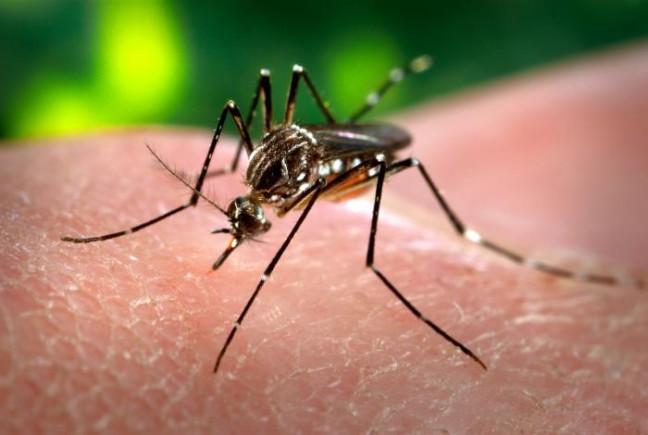An interdisciplinary group, including hospitals and the veterinary school at University of Wisconsin, is gearing up to study the Zika virus using monkeys.
UW researchers might be the first to contribute data and knowledge to this effort that will help clarify how the virus works, David O’Connor, professor in the Department of Pathology and Laboratory Medicine, said.
Zika is a mosquito-born virus that pregnant women are particularly vulnerable to, which can lead to their children being born with birth defects.
O’Connor, who was involved in the UW research group that discovered the Zika virus in Colombia, was among the first to start paying attention to the virus.
When O’Connor was in Brazil last October, his colleague told him about several local babies infected with the virus who were born with unusually small heads. O’Connor said he decided to use the knowledge he has to help these children.
Using primates, like macaque monkeys, O’Connor hopes to answer questions about how the virus behaves.
“In monkeys we know exactly when the Zika virus is administered, so we can figure out how the timing of infection impacts the likelihood of developing these birth defects,” O’Connor said.
O’Connor said a paper published Wednesday highlighted a single mother with Zika virus during her first trimester of pregnancy. After she aborted the child, doctors autopsied the fetus and found Zika virus in its brain.
The case raised questions, O’Connor said, such as whether the infection from the mother’s body to the fetus can only happen in the first trimester of pregnancy, or also later on.
That’s the reason the research team will infect the monkeys with a specific type of Zika virus and sample them everyday, O’Connor said — to understand where in the body the virus is replicating and the extent of that replication.
Zika virus has been around for 50 to 60 years, O’Connor said, but the reason they are only starting to study it is because it doesn’t have clear symptoms like some other viruses, which makes it difficult to analyze the infection pattern in the human body.
Moreover, O’Connor said, people who study diseases usually focus on viruses that make people obviously sick, such as HIV and Ebola. When there is a limited amount of funds for disease research, there is less enthusiasm for studying viruses like Zika that don’t have an apparent impact.
“The money to study diseases will go toward those diseases that have the greatest impact on public health, either in the U.S. or globally,” O’Connor said.
Dawn Dudley, assistant researcher in O’Connor’s lab, said while Zika virus doesn’t show clear symptoms in normal, healthy people, there is potentially an increased risk of Guillain-Barre Syndrome with Zika virus infection.
According to National Institute of Neurology Disorders and Stroke, Guillain-Barre Syndrome is a disorder where the body’s immune system attacks part of the peripheral nervous system, causing muscle weakness or tingling in the legs.
Guillain-Barre Syndrome in the past has been linked with different virus infections, Dudley said, but it’s unclear now if Zika virus causes increased risk of the syndrome, or if multiple incidents of the syndrome are occuring because there’s a large number of people infected with Zika virus.
There are many mysteries about Zika virus at the current stage, O’Connor said, but a year from now, they are going to know an enormous amount about Zika virus, as a huge amount of research is just getting underway at UW.
As governments are deciding how to respond to the Zika virus and what plans they want to create, O’Connor said it’s important to be guided by large amounts of accurate data, because the public often presses the government to take actions immediately.
“The decisions [the government makes] are comforting to some people because it looks like the government is taking action, but … if that action isn’t guided by science, it does more harm than good,” O’Connor said.


















